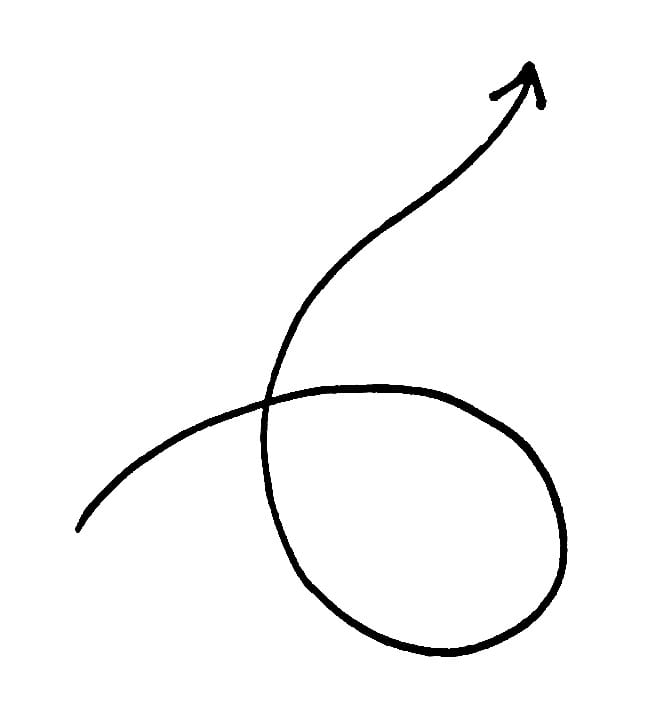When I announced that I was re-opening Dagmar, I had an old friend immediately reach out. We hadn’t spoken in a couple of years. He was going through some life transitions himself, and had a lot of questions for me. One in particular surprised me.
He asked, “Why are you returning to your old career? Doesn’t that feel like going backwards?”
This was jarring to me, but I also understood it, because I used to believe this myself.
We see examples of this thinking all the time, especially in Silicon Valley. Reinvention is a constant here, and innovation is tied quite literally to value. We’ve watched the entire industry move en masse, over and over, to the next big thing, from Web 2.0 to DTC to On-Demand to Web3 to Crypto to AI, insisting that whatever came before it is now dead.
So it makes sense that this culture would bleed into us as individuals, and the way we think about our life’s path.
But when you look outside of this culture, a return is often the precursor of one’s best work.
To understand what I mean, let’s look at the “return” as a concept and how it shows up outside of Silicon Valley.
The term "return" generally refers to the act of coming back to a place or condition. It can signify a physical return to a location, a return to a previous state of being, or metaphorically, a return to a theme, idea, or narrative.
In mythology, history, and literature, the concept of the "return" is prominent and often symbolically significant.
In the work of Joseph Campbell, for example, the "return" is a crucial stage in the "hero's journey"—a pattern of narrative identified in a wide variety of stories from around the world. The hero's return home with newfound wisdom or knowledge marks the completion of their journey and often brings a resolution to the story.
I often see the powerful mythology of the return around me, everywhere I look.
If you’ve ever watched Chef’s Table, which profiles the career journeys of the best working chefs in the world, you will notice a pattern: chefs will leave where they are from in their early career to go study classic French techniques from the greats. Then, despite their skills, they will have a period of struggle in finding their identity. Then the magic happens, when they "return" to themselves and where they are from, combining what they have learned on their explorations with their past and heritage.
Just the other night, I watched an interview with Nicki Minaj about her new single, FTCU, and how its success was because of an accidental return to her past. She explained that she was struggling to write the song, feeling pressure to create something in a particular style. She joked to a friend that “the old Nicki would have rapped it this way”—and proceeded to belt out, in jest, what would end up being the most prolific lines of the song. By letting herself engage in a playful exercise, acting out what she thought was her “past self,” she ended up creating work that referenced her past, but was ultimately new, and commercially successful.
It’s also worth mentioning that as much as Silicon Valley loves reinvention, its greatest pride is Steve Jobs, who did his most prolific life’s work when he returned to Apple. But leaving was also necessary—without it we would likely not have Pixar, and we would likely not have the Apple we know today.
My point is this. I know there are people reading this newsletter who have left behind former trades, jobs and hobbies, which is a natural thing to do around here. To constantly reinvent is part of surviving in Silicon Valley. I believe there is a chapter in life where flowing with this current—going out and exploring many lives and perspectives and identities—is important, and will greatly benefit you in life.
But equally important is the return. This does not mean going back in time and repeating your old work, stroke for stroke. This means taking everything you have learned in your explorations and travels and reinventions, and understanding that when combined with your past, you will make something completely new, and completely yours, and even more of service to the greater community. We see time and time again, in history, literature and media, it’s the return that defines your life’s work.
Here’s a journal prompt I’d suggest to you if you’d like to figure out how this all applies to you:
- Write down all of the chapters, identities and talents you’ve explored in your life.
- Write down what you’ve learned from every chapter.
- Note which ones you have suppressed or abandoned. Ask yourself why.
- Ask yourself what your dream job, project or life would be. Does it involve things that you’ve abandoned?
- Begin writing as if your dreams have come true. See how every single chapter in your life prepared you for this thing. Write about how leaving and exploring new things was necessary, as well as the return. Write about your gratitude for all of it.
Thanks for reading, and see you soon.
H


